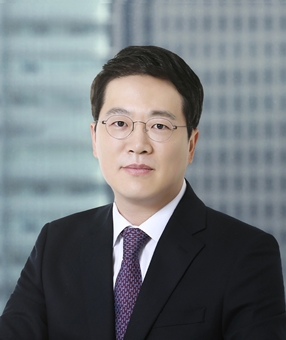In 2021, there were dramatic changes in the relationship between the Police and the Prosecutors’ Office (the “PO”) in Korean criminal investigations. Until a few years ago, the PO took the leading role in criminal investigations and supervised investigations conducted by the Police and the Special Administrative Police (the special police units embedded in certain government agencies) (the “SAP”). The amended Criminal Procedure Act, which took effect in 2021, brought about groundbreaking changes by (i) placing the Police on equal footing with the PO, (ii) granting the Police the authority to initiate investigations and (iii) limiting the PO’s authority to initiate investigations to only six specific types of crimes.
As a continuing part of the above trend, in 2022, the Criminal Procedure Act and the Prosecutors’ Office Act were further amended, and the authority of the PO to initiate investigation was further reduced from six to just two categories of crimes (corruption and economic crimes) and the PO’s authority to supplement investigations with respect to cases conducted by the Police was curtailed.
Trends in Police Investigations
1. The Police Now Make Legal Determinations
As a result of the investigation reforms, the Police now make final decisions with respect to issues of law as well as with respect to the relevant facts in their investigations. As a result, the number and scope of cases filed with the Police have increased, and in most criminal cases, the Police, and not the PO, are taking the lead in handling investigations. In addition, while the Police in the past used to focus primarily on fact-finding and defer to the PO in reaching legal conclusions, the Police are now making their own legal determinations. The expanded role of the Police means that addressing both legal and factual issues at the Police investigation stage is becoming increasingly critical and decisive in terms of the outcome of a case.
2. Increased Police Caseload Has Led to Delays
Another major trend affecting Police investigations has been delays in the conclusion of investigations. There has been significant criticism that the Police-initiated investigations are experiencing significant delays. To increase their investigation capacity and expertise, the Police have been taking various measures, including expanding the size of specialized investigation units, increasing cooperation with other government agencies to enhance expertise, and operating integrated investigation units to mobilize personnel and resources more easily.
While the Police have been making various efforts to secure more resources and to enhance efficiency in investigation, it remains to be seen whether the Police will be able to reduce delay in their investigations within a short period of time. Since the recent criminal investigation reforms took effect, the caseload of the Police has increased by around 30% but the number of investigation staff increased only by 440 in 2022 from a total of 30,601 investigation staff in 2020. Budgetary constraints for the Police remains an obstacle in reducing the delay in police investigations.
3. Increased Fairness & Transparency
In addition, in order to enhance fairness and transparency in light of their increased authority, the Police have introduced a legal review system under which the Police’s decisions not to refer the case to the PO or to issue requests for arrest warrant undergo legal review by internal examiners. The Police also announced that they will strictly prohibit any unofficial contact or inquiry by outsiders regarding pending investigations.
Trends Affecting Prosecutors’ Office
1. Formation of Specialized Teams
Since the reforms took effect, the PO has been bolstering its capabilities and personnel to strengthen its investigation capacity for the limited types of crimes with respect to which the PO can initiate investigations. For example, the PO has established teams within the PO dedicated to finance and securities crimes, technology leakage crimes, and narcotics crimes based on the understanding that such crimes belong to the category of economic crimes. Overall, it appears that the PO intends to focus its investigative authority on serious crimes of major public concern.
2. Supervision of Special Administrative Police Units
In addition, as the PO will continue to hold supervisory authority over investigations conducted by the SAP, the PO is expected to increase its focus on SAP-led investigations. The SAPs of various government agencies investigate various areas that are closely related to business activities such as finance, tax, customs, labor, industrial accidents, food, and environment. In November 2022, the PO held a meeting attended by SAP officers from 30 agencies at the Supreme Prosecutors’ Office. Currently, a total of 20,000 SAP officers are active in 42 areas, and the PO plans to invest more in their training and supervision of their investigations.
3. Greater Reliance on Obtaining Direct Physical Evidence
Under the amended Criminal Procedure Act that took effect in January 2022, signed interrogatory transcripts by suspects which are prepared during questioning by prosecutors no longer carry evidentiary weight at the criminal trial if suspects deny the validity of their own statements. As a result of this change, concerns have been raised that criminal trials will experience even more delays and it would be difficult to establish relevant facts in certain types of cases where physical evidence is not readily available. As a result, the PO is stepping up its efforts to secure tangible evidence through searches and seizures and digital forensic investigation techniques to the fullest extent possible.
Implications
Considering that the Police will now draw their own legal conclusions during their investigations and are seeking to enhance fairness and transparency in investigations, strong and proactive advocacy at the early stages of the Police investigation by legal counsel will become even more critical.
The increase in the Police investigation authority does not mean that the PO’s role has become less important than before. As the PO still retains the authority to direct supplemental investigation or re-investigation, strong advocacy at the PO stage remains essential to a successful outcome of any criminal case. Further, even though the scope of the PO’s power to initiate investigation has been reduced, the PO still has authority to initiate investigations on various important issues related to corporate activities and can exercise its investigative power in a wide variety of areas by supervising SAP investigations.
Related Topics
#Prosecution Reforms #Criminal Investigations #Compliance #Outlook #Legal Update










